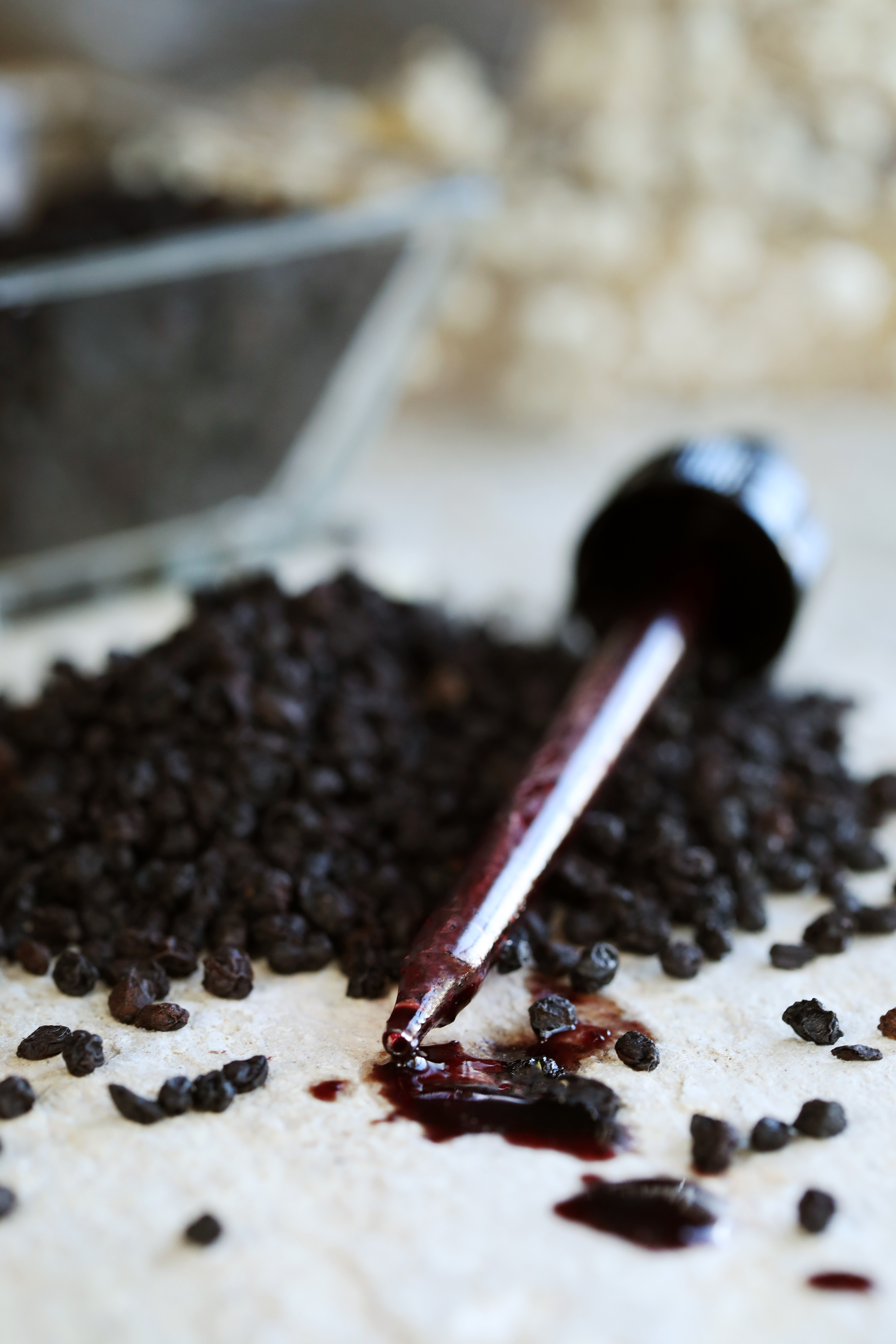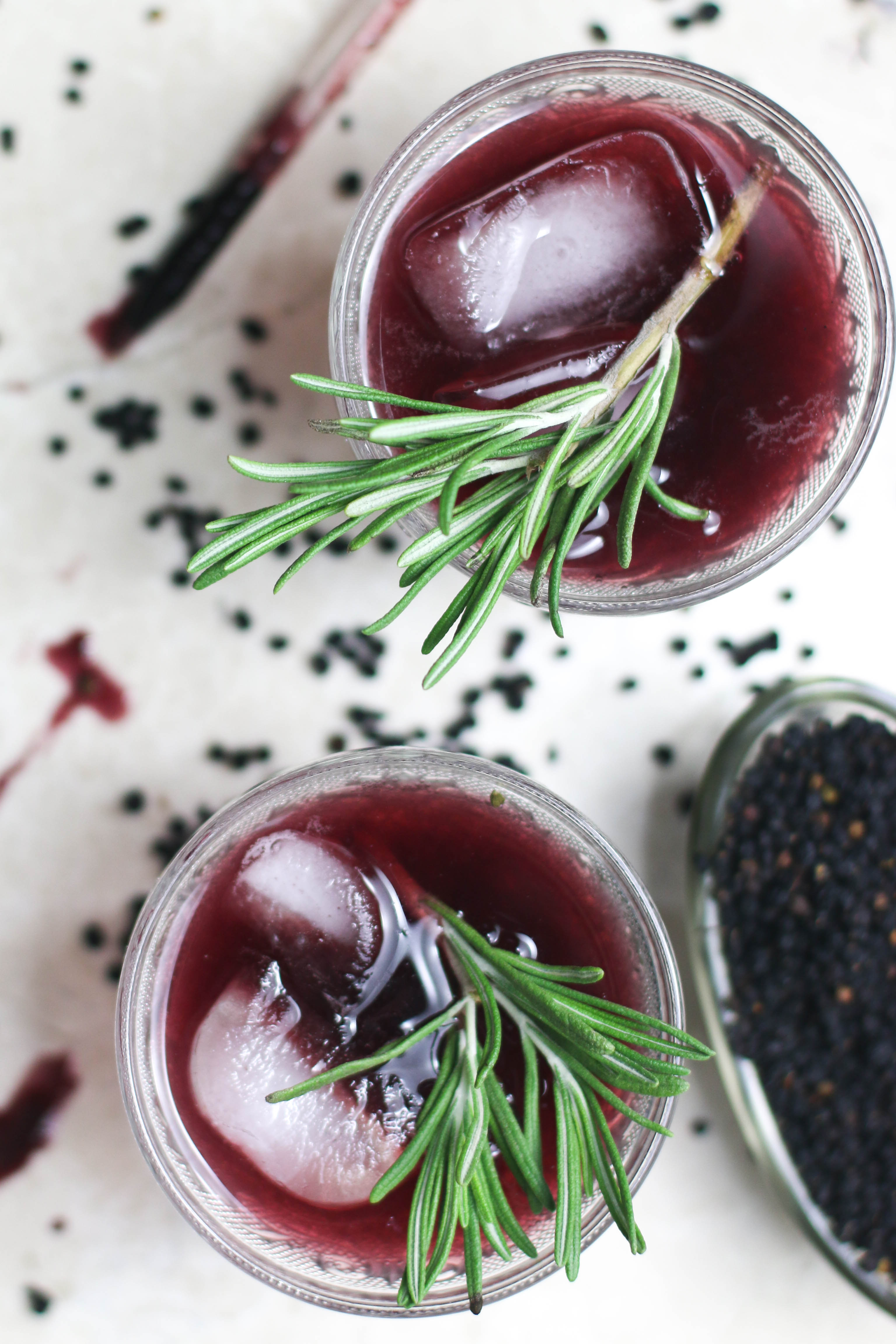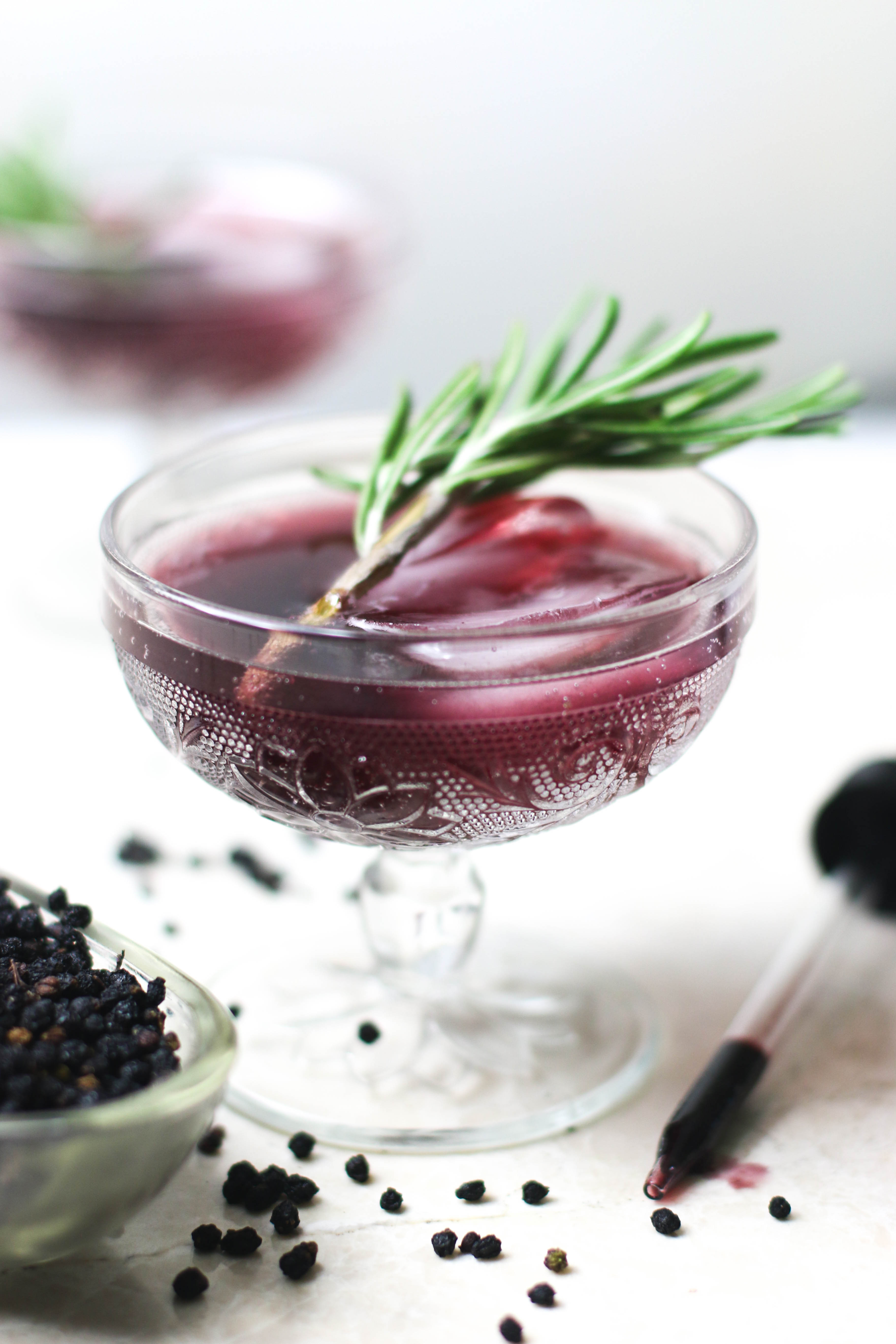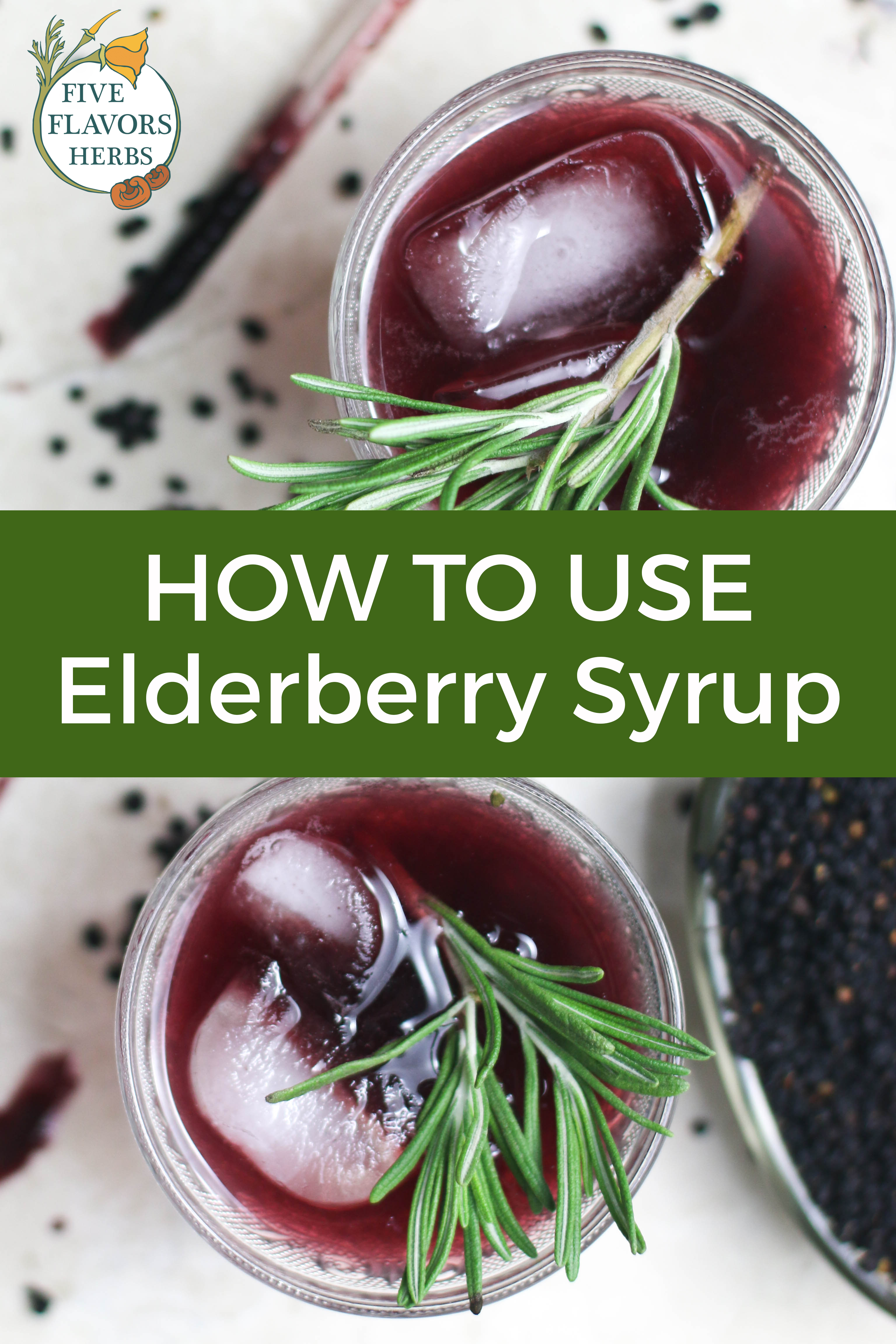We are proud to share this guest post from Dr. Catie Morse, founder and formulator of Dr. Appleseed’s Elderberry Extracts—maker of artisanal, small-batch, elderberry syrups and sweetened and unsweetened elderberry extracts available in our online shop.
The elder plant is one of the most widely used health-supporting botanicals in the world. While elderberries have only recently gained attention from the mainstream medical community for their usefulness in promoting resilience and maintaining good health, this herbal ally has long been part of the human story. Considered a longevity aid in folk remedies, there is also evidence of humans cultivating elder in agricultural settings all the way back to the end of the Stone Age (around 2000 B.C.E.)! So, what’s kept our species in such a long-term relationship with this potent plant?
Elderberry Benefits According to Traditional Use
Within the folk healing traditions of many cultures, elder flowers and berries have been regarded for supporting the immune and respiratory systems for all age groups. Historically, herbalists have used this versatile plant to help prevent seasonal maladies, break a sweat, induce urination, and clear phlegm. It has also been used to support cardiovascular health and balance the blood sugar.
Elderberry Studies on Immunity, Aging, and Heart Health
Elderberry has gained much attention in medical and phytopharmaceutical research due to its long history of use, excellent safety profile, and therapeutic promise. In vitro, animal, and clinical trials on elderberry have yielded some encouraging findings, and have ushered elderberry into the spotlight.
Elderberries contain flavonoids and anthocyanins, phytonutrients that have demonstrated antioxidant, anti-inflammatory, and pro-circulatory actions. Clinical research has shown that elderberries demonstrate free radical scavenging activity and renew vitamin C, important factors for promoting healthy aging and supporting a healthy immune response.
Who Can Take Elderberry?
Elderberry is generally regarded as safe by the FDA GRAS list. In reasonable amounts, elderberry preparations are supportive and appropriate for the majority of individuals, including almost anyone looking for a natural, generally safe, and inexpensive herb to build non-specific resilience. Nurses, doctors, travelers, families, children, and those experiencing periods of stress may all find elderberry extracts and syrups helpful in staying well during times of strain.
As with all herbal remedies, caution is recommended for first-time users of elderberry. The Natural Medicines Comprehensive Database lists theoretical drug-herb interactions between elderberry and immunosuppressive drugs. Anecdotal evidence suggests some individuals with autoimmune conditions may not respond well to elderberry. Before consuming elderberry, please consult your doctor or naturopath if you are unsure what medications you are taking, or if you are pregnant or lactating.
How Much Elderberry Should You Take?
Elderberry syrups and extracts that are designed as supplements (rather than for culinary use) will denote the serving size on the container and suggest an adaptation for children. Generally speaking, you can take elderberry extracts and syrups once a day to maintain wellness, or two to three times a day to address acute symptoms. For elderflower tea, pour hot (not boiling) water over two teaspoons of flowers, steep for 10 minutes, and drink hot to enjoy a flavonoid-infused tea.
Fresh Elderberry Safety & Use
A few safety notes about making your own elderberry remedies from fresh or dried material. The stems, barks, leaves, and seeds of the elder plant contain hydrocyanic acid, a toxic substance that can lead to adverse effects, primarily nausea and diarrhea. The blue and black elderberries can be safely eaten by themselves or mixed into remedies after proper cooking to neutralize their toxins. For an even more conservative approach to consuming elderberries, mash and strain the seeds out using a mesh filter prior to cooking.
If you’re new to practicing herbalism, do your homework first on any plant you plan to grow or use. As a rule, red elderberries (Sambucus racemosa) are to be avoided in herbal preparations unless your apprenticeship with your elders has taught you deeply specific practices regarding handling the lesser used parts and species of the elder plant.
Blue Elderberries vs. Black Elderberries: What’s the Difference?
Different variations of elderberries can be found all over the world. Currently, the most common elderberry variety in the scientific literature and in commercial remedies is the black elderberry, Sambucus nigra. Less commonly, West Coast residents may encounter the native elderberry of this bioregion, the blue elderberry, (Sambucus nigra ssp. cerulea). Both types of elderberry have historically been used medicinally.
Because black elderberries have been more widely studied for efficacy and potential interactions with medications, they have become the variety of choice for physicians and commercial herb growers. However, their historical use suggests that blue elderberries are also of high therapeutic value, and growing them in their native habitat presents an opportunity for regenerative and organic farmers. With its drought tolerance, abundant yield, and benefits for local fauna, blue elderberry is a plant ripe for an agricultural resurgence in the era of climate change. Making this pollinator-friendly keystone species more widely available could help satisfy the growing demand for medicinal elderberry products while promoting local biodiversity and economic growth opportunities.
At Dr. Appleseed’s Elderberry Extracts, we’ve long used blue elderberry in celebration of its ecological sustainability, its natural abundance in the state we call home (California), and its rich history as a folk herbal preparation. Recently, we were also happy to announce the introduction of sustainably sourced European black elderberry. All of our extracts and syrups are produced in small batches to ensure the purity of each natural, vegan, and physician-formulated offering.
For a tasty and healthy dose of health support, try this simple alcohol-free mixed drink recipe featuring our new Black Elderberry Syrup with Mulling Spices—a warming, digestion-aiding, and refreshing seasonal special made with fresh ingredients that’s perfect as an afternoon pick-me-up, or as a festive offering for holiday gatherings.
Spiced Elderberry Shrub Mocktail Recipe
Ingredients
- 2 dropperfuls Back to School immune support tincture
- 1 Tbsp. Dr. Appleseed’s Black Elderberry Syrup with Mulling Spices
- 1 Tbsp. organic, raw apple cider vinegar
- 2 oz. sparkling water, to taste
Directions
- Combine all ingredients, mix, and sip (or take as a shot).
- If you have a sensitive stomach (or prefer a less tangy drink), add honey to the recipe to reduce the bite of the acidity. Dissolve the honey into the apple cider vinegar at room temperature before adding other ingredients to mix. Or omit the vinegar altogether.
ENJOY MORE NATURAL SUPPORT WITH ELDERBERRY PRODUCTS:
SHOP REMEDIES FOR IMMUNE HEALTH
You might also enjoy:
- Using Herbal Tinctures for Natural Health Support
- Panax Ginseng for Balance, Vitality & Focus
- Yu Ping Feng San Recipes for Respiratory & Immune Support
Written by Dr. Catie Morse, N.D.: Dr. Catie Morse is a naturopathic physician, certified qigong practitioner and creator of Dr. Appleseed’s Elderberry Extracts, with over 15 years of sustainable wild harvesting experience as well as cultivation of Elderberries and extraction. Dr. Morse’s mission is to empower healing connections between people and plants in an effort to inspire more urban and agricultural plantings inclusive of edible, native, and medicinal plants.





